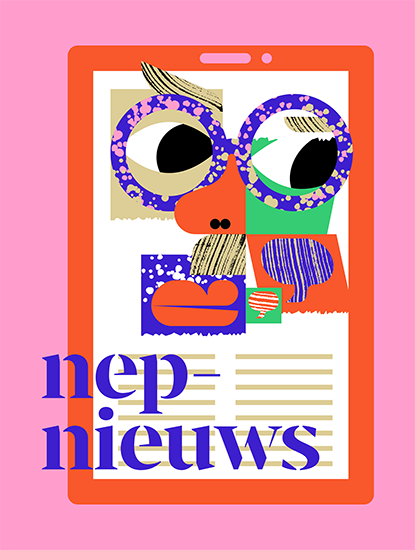A news source
Today, 39% of the Flemish population use social media to stay up to date with the news. For one in three youngsters between 18 and 24 years old, social media is even their most important source of news, as found by the Digital News Report. It’s clear that social media make their mark on the news landscape, but that doesn’t make them news providers: they don’t create news themselves, but use news articles and videos made by others in order to make money.
Driven by advertisement
Advertisements are the main source of income for social media. That also has consequences for the news users get to see in their feed. Social media algorithms try to predict what content people will like in order to keep them on the platform for longer. Because the more users (and user data) social media platforms can gather, the more advertisers they will attract. Companies like using social media for well-targeted advertising, for example based on age or interests.
Filter bubbles
When we are inundated with personalised information on social media, we risk landing in a filter bubble. This is literally a bubble of information filtered by algorithms based on what they think we will like. The risk of filter bubbles is that you no longer get to see certain information, which makes you miss specific news items, resulting in a less nuanced view. You are no longer confronted with other opinions and ideas, which can facilitate prejudice and gives you a one-sided worldview.
The spread of disinformation
Social media have also cleared the way for the dissemination of fake news, conspiracy theories and propaganda. These are examples of misleading information. These messages often come with exciting or shocking titles, which helps them draw attention. Social media help disinformation spread very quickly: on the one hand because users share the message, on the other hand because algorithms favour popular posts in your feed. Algorithms cannot discern real news from fake.
Positive effects
We shouldn’t forget that social media also have positive effects on the way we consume news. Thanks to social media, we can be alerted to breaking news very quickly. Additionally, everyone’s voice can be heard and even go viral without the intervention of a news organisation. This is a good thing, especially in societies where minorities are repressed or underrepresented. And witnesses can also report events directly. Think for example of the death of George Floyd, which was filmed and shared live on social media by bystanders.

